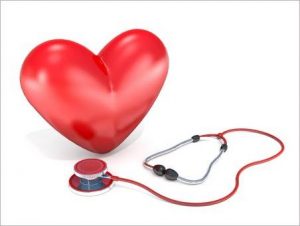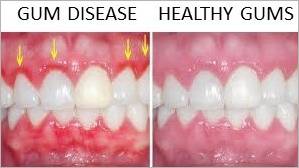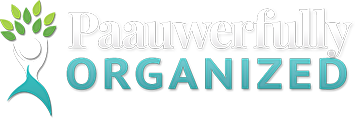Are you paying attention to factors that can have a significant impact on the quality and longevity of your life? Your life depends on it!
Just over a year ago, my 56-year-old brother died of a heart attack. Two weeks ago, my 61-year-old brother-in-law’s life was cut short by a fatal heart attack. In 1981, my father lost his life to a heart attack at the age of 47. I was just 21 years old at the time, and that wake-up call jolted me into paying much closer attention to my own self-care.
These more recent losses have served as a painful reminder of just how delicate our health can be, and how important it is for us to take 100% responsibility for our own well-being. I will be 60 years old in May, and I am much more aware of several potential risk factors that affect my own health, as well as healthy choices I can make to mitigate those risks.
Important Health Factors
Here are some important health factors that deserve your careful attention, so you can enjoy optimal health. Even if you don’t do all of these things, paying attention to just a few of these factors can mean the difference between life and death.
 Check Your Blood Pressure
Check Your Blood Pressure
High blood pressure (hypertension) is one of the greatest health risks in western society. According to an American Heart Association study, as reported by USA Today, 48.5% of U.S. adults (121 million) deal with some form of cardiovascular disease (heart or blood vessel), mostly because of high blood pressure. A healthier diet, exercise, and lifestyle alterations can have a significant impact on a much longer life expectancy. You can read more about this in my blog, What Death Teaches Us About Life.
Listen to Your Body
A 2015 study found that more than half of those who experienced sudden cardiac arrest had ignored warning signs. This was the case for my father, my brother, and also my brother-in-law, who all ignored warning signs. Other studies have found that there are often warning signs for cancer that are ignored or put off. If your body is feeling something that is different from your normal aches and pains, pay attention and get it checked out. It could save your life.
Know Your Hemoglobin A1c
This is a test of your blood sugar level, which needs to be under 6. If that number goes above 6, you risk the possibility of becoming a type 2 diabetic. More than 100 million U.S. adults are now living with diabetes or prediabetes, and 95% of those have type 2 diabetes. Nearly a quarter of those with the condition do not know they have it. You can lower your A1c by getting at least 30 minutes of exercise 5 days a week, and eating a balanced diet with proper portion sizes. If you are unable to lower this through diet and exercise, medication may be necessary. A high A1c may significantly lower your life expectancy. Take a quick and free prediabetes risk test here.
Monitor Your Weight
 Worldwide obesity has nearly tripled since 1975. In 2016, more than 1.9 billion adults (18 years and older) were overweight. Of these, over 650 million were obese. And it’s not just adults…41 million children under the age of 5 were overweight or obese in 2016, and more than 340 million children and adolescents aged 5-19 were overweight or obese in 2016. Obesity is linked to several factors that increase one’s risk for cardiovascular disease (coronary artery disease and stroke). Cancers fueled by obesity are also on the rise among young adults in the United States and appearing at increasingly younger ages, according to an analysis released yesterday (February 4) by the American Cancer Society.
Worldwide obesity has nearly tripled since 1975. In 2016, more than 1.9 billion adults (18 years and older) were overweight. Of these, over 650 million were obese. And it’s not just adults…41 million children under the age of 5 were overweight or obese in 2016, and more than 340 million children and adolescents aged 5-19 were overweight or obese in 2016. Obesity is linked to several factors that increase one’s risk for cardiovascular disease (coronary artery disease and stroke). Cancers fueled by obesity are also on the rise among young adults in the United States and appearing at increasingly younger ages, according to an analysis released yesterday (February 4) by the American Cancer Society.
Schedule Regular Screenings
Here are five screenings that are important to schedule: colonoscopy, mammogram, Hepatitis C, skin cancer, prostate cancer. The frequency of these screenings is set based on your age and medical/family history, so check with your primary care provider and then be sure these screenings get on your calendar for the frequency recommended. Early detection can mean the difference between life and death.
Maintain Oral Health
 There is a strong correlation between gum disease (periodontitis) and cardiovascular disease. Regular teeth cleanings and checks will greatly reduce gum disease and a subsequent heart attack, stroke, blocked blood vessels or other life-threatening medical condition. Your gums reflect the condition of your entire body. Flossing is also very important. According to studies, non-flossers had a 30% higher death risk than those who floss daily.
There is a strong correlation between gum disease (periodontitis) and cardiovascular disease. Regular teeth cleanings and checks will greatly reduce gum disease and a subsequent heart attack, stroke, blocked blood vessels or other life-threatening medical condition. Your gums reflect the condition of your entire body. Flossing is also very important. According to studies, non-flossers had a 30% higher death risk than those who floss daily.
Get Adequate Sleep
Although the number of hours of sleep needed for optimal health may vary from one individual to the next, it’s important that you know what that number is for you, so you can prioritize your sleep routine accordingly. A 2018 University of Pennsylvania study found that sleep deprivation mimicked the aging process on a cellular level, causing cognitive decline and impaired memory. Another study found that those who slept more than 10 hours a night had a 30% higher risk of early death…so too much sleep is not good, either.
Feed Your Body Good Fuel
 Strong muscles are supported by consuming 25 grams of fiber daily, as well as receiving 1/3 or your calories from healthy fats, such as fish, nuts, and olive oil. A plant-based diet (fruits, veggies, nuts, seeds, beans, legumes) has proven to prolong life. Reduce inflammation by minimizing or eliminating sugar, refined flour, fried foods, Omega-6 fatty acids (from foods fried in corn or vegetable oil), and artificial sweeteners. Build strong bones with exercise, such as weight training, walking, hiking, jogging, stair climbing, tennis, and dancing.
Strong muscles are supported by consuming 25 grams of fiber daily, as well as receiving 1/3 or your calories from healthy fats, such as fish, nuts, and olive oil. A plant-based diet (fruits, veggies, nuts, seeds, beans, legumes) has proven to prolong life. Reduce inflammation by minimizing or eliminating sugar, refined flour, fried foods, Omega-6 fatty acids (from foods fried in corn or vegetable oil), and artificial sweeteners. Build strong bones with exercise, such as weight training, walking, hiking, jogging, stair climbing, tennis, and dancing.
Avoid Addictive Substances
Take inventory of your consumption of addictive substances such as alcohol, cigarettes, and drugs. Prescription drugs — particularly pain meds – can be extremely addictive. Much of our opioid crisis today is attributed to pain medications initially prescribed by a physician. If you are struggling with an addiction, seek help immediately.
Practice Car Safety
We all know that it’s not safe to drive after drinking or taking certain drugs. We also know that distracted driving is just as dangerous. A study conducted at Wayne State University found that older drivers perform much worse than younger drivers when texting while driving. During a driving test, nearly 40% of those age 25-34 wandered out of their lane while texting. Among those age 45-59, the incidence was 100%. If you are not the one behind the wheel, ensure that the driver is not under the influence of drugs, alcohol, or a smart phone. And always wear your seatbelt.
Don’t Drink and Climb
 If you’ve had something to drink or have taken medication that makes you unstable on your feet, minimize your fall risk by avoiding such things as climbing ladders or stairs. These types of falls have generated an increase in head and neck injuries.
If you’ve had something to drink or have taken medication that makes you unstable on your feet, minimize your fall risk by avoiding such things as climbing ladders or stairs. These types of falls have generated an increase in head and neck injuries.
Say Some Hard Goodbyes
Studies show that healthy relationships have a positive effect on our physical and mental health. Not all social circles are positive, and you may suffer from the influence of toxic “friends” who pull you down. For example, if you intend to eat healthy and be more active — and those in your social circle eat an unhealthy diet and live a sedentary life — these changes will be harder for you to make and keep. When you recognize that your circle of friends includes one or more toxic individuals, find ways to minimize the amount of time you spend with them, thus reducing or eliminating their negative influence.
Be Your Own Best Caregiver
As you grow older, you may feel like you’re working yourself to the bone with increased caregiving responsibilities for children, grandchildren, aging parents, a spouse, or other family members. This can be an exhausting job, often requiring 24/7 care. According to a study in the Journal of American Medical Association (JAMA), those with “caregiver strain” had a 63% higher mortality risk than non-caregivers. If this describes you, ask for help so you can carve out some down time to care for your own needs.
Make a Difference
A study showed that people over the age of 50 — who volunteered at least 200 hours in the previous year for something meaningful to them — experienced mental health benefits and were also at a lower risk for developing hypertension.
Feed Your Soul
 People who live an on-purpose life live longer than those who aimlessly plod through each day or who work in a job they don’t enjoy. Find what makes your heart sing, and incorporate that into your daily living. When you are using your natural talents and skills, time flies by and it doesn’t even feel like work. If you cannot afford to follow your passion for your career or work, find ways to incorporate what feeds your soul into other parts of your life.
People who live an on-purpose life live longer than those who aimlessly plod through each day or who work in a job they don’t enjoy. Find what makes your heart sing, and incorporate that into your daily living. When you are using your natural talents and skills, time flies by and it doesn’t even feel like work. If you cannot afford to follow your passion for your career or work, find ways to incorporate what feeds your soul into other parts of your life.
Take Action Challenge
Below are some questions to help you identify areas that may need your attention so you can take 100% responsibility for your own health and well-being. Answer yes or no for each question.
- Do I get enough daily exercise (cardio, strength training, yoga, other)?
- Do I nourish my body with adequate hydration, healthy foods, and avoid overeating?
- Do I get regular medical and dental checkups and screenings, and follow the advice of the professionals who care for me?
- Do I pay attention to what my body is telling me and get concerns checked out?
- Do I get enough sleep and do things that rejuvenate me?
- Do I carefully choose who I allow into my circle of influence (social circles)?
- Do I maintain a healthy weight, blood pressure, blood sugar level, cholesterol level, etc.?
- Do I limit my alcohol and caffeine intake?
- Do I abuse any drugs (legal or illegal) or have any addictions that need attention?
- Do I practice safety measures that limit my injury risk (during activities, in a car, etc.)?
- Do I participate in meaningful volunteer work?
- Do I live an on-purpose life that makes my heart sing?
Once you’ve answered the questions above, determine the following for EACH NO answer you’d like to improve upon:
Goals or intentions for improving _______:
—
—
—
Actions to be taken and by when:
—
—
—
If you’d like a fresh perspective–someone to help you map out a plan to improve your health and well-being—let’s schedule a no-cost, no-pressure Discovery Call today.
Additional Resources:
Blog: Balance Your Life: Environment #2 – Your Body
Blog: What Death Teaches Us About Life
Blog: Ban the Tan
Blog: Finding Your Purpose
Free Guide: February 2019 Happiness Calendar of Events
Guide: 12 Daily Habits to Improve Your Health & Well-being
Guide: Creating New Habits

Life Architect – Creating Blueprints for Purposeful & Productive Lives
Kathy@OrgCoach.net www.OrgCoach.net Follow me on Facebook






Dying in ones 50s and 60s of a heart attack has become too common. My condolences to you 😢. Thank you for this great reminder and info on maintaining good health. Truly, Victoria
Dear Kathy, as usual your blog is a great reminder to all of us to read over and over and pay more attention to our health. I appreciate it very much. Thank you for your kindness and your time to help others….